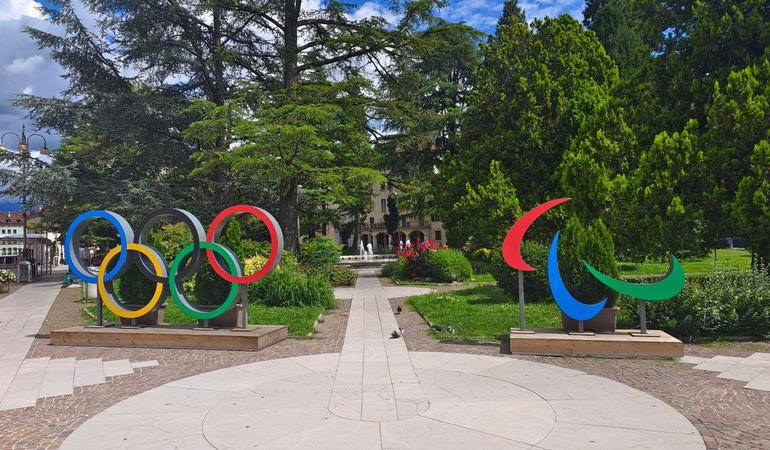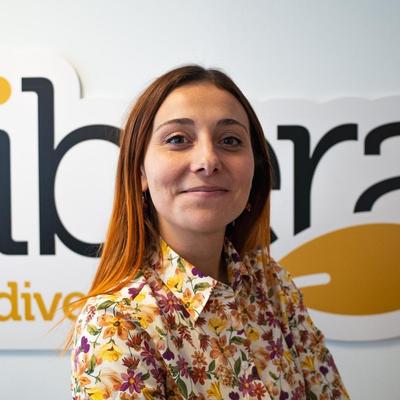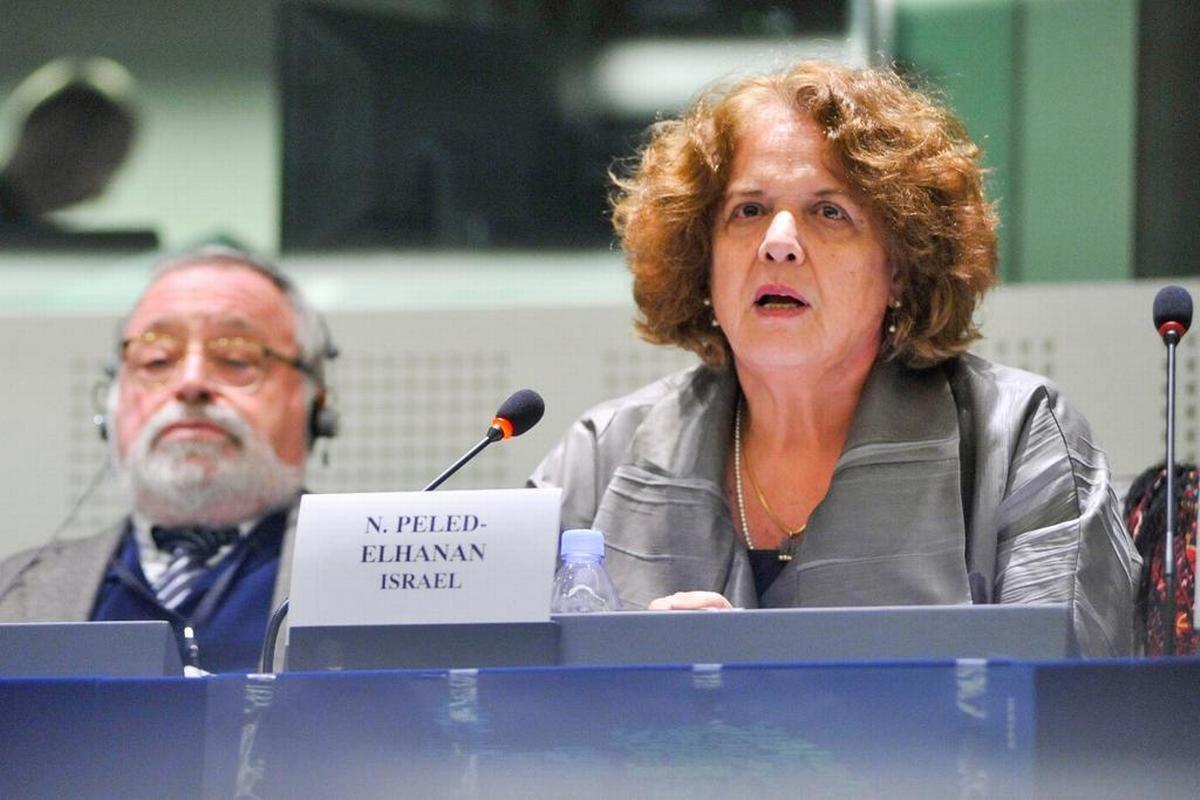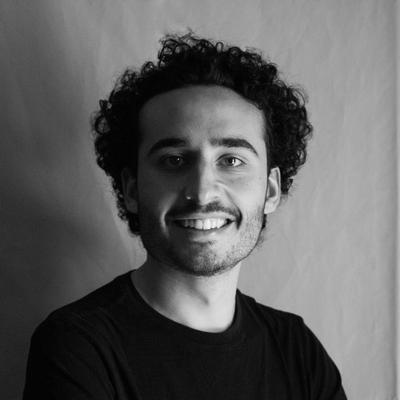
Milano-Cortina. Ecco come verranno spesi i 450 milioni di euro delle paralimpiadi



6 settembre 2024
At least 17 dead, most of them women and children: this is the (provisional) toll of the latest Israeli attack on civilian targets in Gaza, which this morning hit a school used as a shelter in the Nuseirat refugee camp. The fifth bombing against a school building in the last eight days. "It's an extermination, but the international community doesn't give a damn," denounced Nurit Peled-Elhanan, an Israeli academic who won the Sakharov Prize for Freedom of Thought in 2001. At that time, in front of the European Parliament that had awarded her the prize, she had said: "It is not for me, but for that voice that death has delivered to me and that politicians and generals want to stifle".
Death had met her four years earlier, in 1997, when her daughter Smadar, then 13, was killed in an attack by a young Palestinian in Jerusalem. A scholar of the link between language and violence, after the 7 October massacres, she was threatened with suspension by the headmaster of the David Yellin College of Education, where she worked, for having mentioned in a chat with colleagues the oppression the people of Gaza have suffered for decades. "I said I would resign if the letter of reprimand against me was not withdrawn, and so I did," she tells lavialibera.
Professor, nine months have passed since 7 October and the war continues with tens of thousands of victims: do you see a way out?
The way out is to get out, to end it. And the one who doesn't want to is the government of Israel, for several reasons. One of them is that, basically, it has always wanted to have control over Gaza and establish settlements there. Some ministers openly declare this. Now they see an opportunity to realise this project.
What has happened since you took a stand against the war?
I have received thousands of threats and intimidation. I was even summoned by the police for an alleged video of me calling Hamas killers 'heroes': I asked to show me that video, I was told it no longer existed and the case was closed. It is the government that pressurises institutions to report those who express critical opinions. In short, it was not pleasant, but some colleagues have suffered worse, especially Palestinians (with Israeli citizenship, ed). But my case also triggered positive processes: other teachers at the college, outraged by what happened to me, created the group 'Safe space for teachers', which is now drafting a code of ethics to guarantee freedom of expression and avoid interference in the future.
What does this climate tell us about the state of academic freedom and freedom of expression, in Israel and in the West?
I have always maintained that Israel is among the most advanced countries when it comes to academic freedom. I always built my courses in total autonomy, said and did what I wanted in class, and no one ever supervised or criticised me as long as the students were satisfied. This is not taken for granted in many other countries. In recent months, however, the climate has gotten much worse, and it continues to get worse. Proposals for laws have been tabled in parliament to force teachers and students who express 'support for terrorism' (of which the Israeli authorities give an extremely broad and discretionary definition, as pointed out by the Association for civil rights in Israel, ed) or opinions 'against the state' to be reported. A teacher, Meir Baruchin, was fired, arrested and even imprisoned for publishing anti-war messages. Now the court has proven him right and he can return to teaching. Similar cases have happened in Europe and America, and perhaps the situation is even worse there.
War in Gaza. Voices from the Rafah hellhole: 'No place is safe here'
What do you think of the pro-Gaza protests that have spread to university campuses in several western countries?
Here in Israel, students who demonstrate are portrayed as dangerous anti-Semites. I hope they can help move something in the governments of those countries, although it seems to me that this is not happening.
Some are calling for the severing of relations with Israeli universities: are we not running the risk of further isolating those who, like you, try to bring a critical discourse 'from within'?
I think it is right to examine individual cases carefully, but in general I think that severing relations with universities as institutions is the right thing to do insofar as they collaborate with the occupation.
In 2012 he explained in a book (La Palestina nei testi scolastici di Israele - Ideologia e propaganda nell'istruzione, Edizioni Gruppo Abele,ed) how language and representations of the other fuel violence. Do you see a connection with what is happening today?
Certainly. My study focused on the textbooks used in Israeli schools, full of racist and dehumanising representations of Palestinians, who are portrayed only as a threat, but also of Arab and Ethiopian Jews. It is an education in ignorance: Israeli children know nothing about the history of Palestine, only that Jews inhabited it thousands of years ago, now they are back and face the threat of a 'new Holocaust'. The role of the exterminator has passed from the Nazis to the Palestinians. They do not even know anything about the history of the Jews outside Israel, beyond the Holocaust. In school books they talk about the ghetto riots during the Second World War, but never mention that the leaders included anti-Zionist figures like Marek Edelman. Obviously this has an impact on what young people think.
And on the spirit with which they then join the military service, I imagine.
Of course. Military service is presented to children as a responsibility as early as kindergarten. Just think that one of the most frequent wishes made to future mothers is 'that you become a good soldier'.
10 yrs ago, the photoreporter Rocchelli was killed in Ukraine. His mother still seeks justice
What role do newspapers and television stations play in constructing and reinforcing these representations?
Right now, most of the Israeli media is completely aligned with the government. We see and read nothing about Gaza except the exploits of our 'brave soldiers'. Now they have even prevented Al Jazeera from broadcasting from Israeli territory. There is no possibility of knowing what is happening on the other side of the wall.
It has been 23 years since the European Parliament awarded you the Sakharov Prize. If you could address the new MEPs today, what would you say?
I would say that a new extermination is taking place, this time against the Palestinians. We often ask ourselves 'how is it possible that we were silent while the Jews were being exterminated?' This is how it is possible: it is happening before our eyes, with the Palestinians. But I have no illusions: European states have no interest in stopping the war and occupation because they benefit from it, especially the arms trade. Italy too. So they resort to the manipulation of guilt: during the Holocaust we did nothing, so today we must stand with Israel without ifs and buts. But this is an excuse.
Do you think that anti-Semitism is also sometimes instrumentalised?
Of course. Israel has always set itself up as the representative of all Jews, so any criticism of its actions is read as an attack on all Jews. Instead, Jews around the world should free themselves, say loud and clear 'this is not who we are'. Some do, many others do not. Meanwhile children continue to die in Gaza, while no one has ever died from being accused of being anti-Semitic. If that is the price to pay to save even one child, then it is worth it.
La tua donazione ci servirà a mantenere il sito accessibile a tutti
La tua donazione ci servirà a mantenere il sito accessibile a tutti